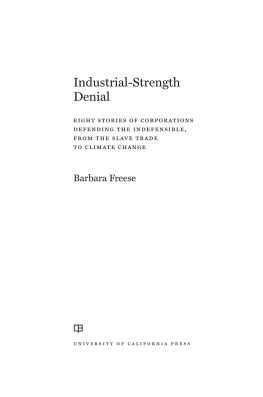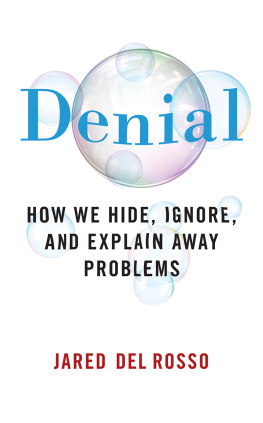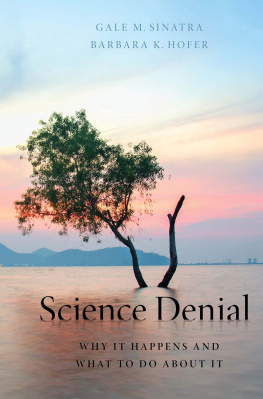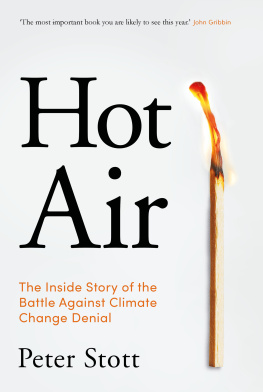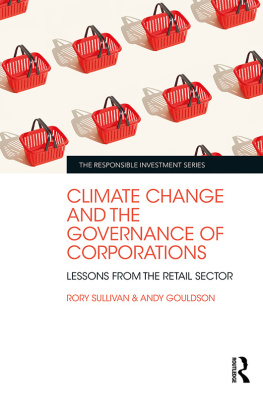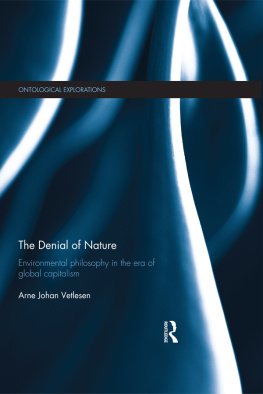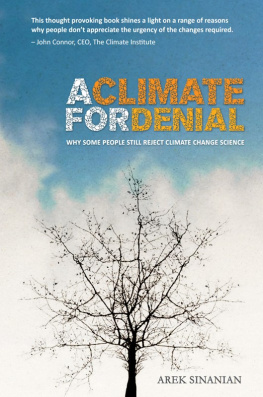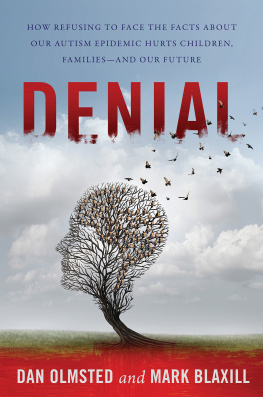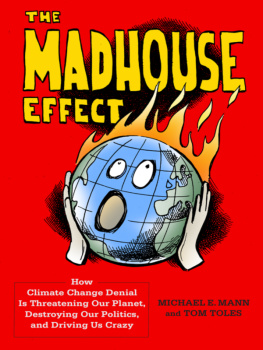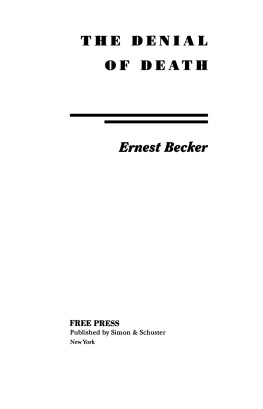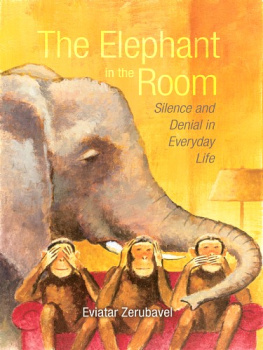Introduction
A DANGEROUS PHENOMENON
The head of the biggest American tobacco company said to a journalist in 1998, smoking on the advice of his doctor. There was no mention in the article of whether he then turned to domestic abuse or reckless driving.
This book tells the stories of eight major campaigns of corporate deniala term I use to broadly include the lies, delusions, and rationalizations that emerge when people working in competitive, profit-driven group enterprises are faced with powerful evidence that they are causing harm. Tobacco is the poster-child of this phenomenon, but we have seen it from people selling many other risky products, creating workplace hazards, or releasing dangerous pollutants. Previous generations even saw it from people in the business of selling and owning their fellow human beings.
In almost every case, the story begins with an exciting discoveryof, for example, a New World, a new element or chemical, a new means of mass production, or a new way of packaging financial risk. An industry races to exploit that discovery and succeeds, sometimes changing society along the way. And in each case this commercial activity causes a grave harm to other people or the planet. Those outside the industry find evidence of this harm, raise the alarm, and a public debate ensues. Corporate representatives offer a flurry of denials, perpetuating the harm by blocking policies that would reduce it. The specific denialswhich are the focus of this bookvary, but the themes echo from campaign to campaign.
Each chapter also describes how other people challenge the industrys denials and eventually reduce the harm, usually through a mix of evidence gathering, media attention, lawsuits, social activism, political movements, and new laws. While it was not my intent when I began, these chapters stand as a handy reminder of just why so many types of corporate activity need to be monitored, challenged, and regulated.
It is no surprise that those working for corporations accused of causing harm would deny it; many of us would be surprised by the lack of such denials. Some people just shrug, viewing the denials with a kind of boys-will-be-boys and corporations-will-be-corporations acceptance. Others shake their heads in condemnation, chalking the denials up to greed. What such resigned acceptance and blanket moral judgment have in common is a failure to take a closer look at this dangerous phenomenon. But corporate denial is worth some serious attention.
For one thing, this rich realm of reality distortion offers a revealing window into the human mind. The struggle to understand reality may be interesting, but the struggle to avoid unwelcome realities is fascinating, demanding far more mental acrobatics. When this struggle plays out within a group dynamicwith inventive and motivated groups urging others to accept a skewed view of the facts, sometimes with life and death consequencesyou have an epic human drama. The body of denials proffered by industry after industry can be seen as both its own genre of fiction and its own subfield of psychology.
Moreover, we should study corporate denial because corporations dominate our economy and shape our democracy, and for a huge proportion of Americans, corporate incentives, pressures, norms, and culture govern our work lives. In America, nations workforce as great river of human effort, skill, and creativity and then realize that most of this river flows through a corporate setting. Surely, we need to better understand how this dominant but artificial form of human organization affects our mental processes and moral behavior, including the extremes of denial it can foster.
It is also worth looking at corporate denial for the light it sheds on two defining controversies of our own moment in history. The first is the growing dispute over what is actually, factually true, and how society should determine thata sort of metadispute that includes everything from the reality of climate change to the size of inauguration crowds. We live in a highly polarized political era many call post-truth, where the perception of objective reality that was once widely shared across society has been fractured. This is usually seen as a result of social media and cable news, which let people live in partisan information bubbles that confirm what they believe, dismissing unwelcome information as fake news or hopelessly biased. Certainly the new information landscape has fueled this trend, but corporate denial helped usher in the current era with decades of skewing facts, eroding social trust, and inviting people to embrace the reality they prefer rather than the one the evidence supports.
The second controversy is over corporate power and social responsibility. Every few decades this issue rises from the background hum of social controversies to command broader attention, and this is one of those times. In the United States, the libertarian rightpromoting a faith in unregulated capitalism that was till recently considered extremelargely dominates the Republican Party. While the Trump administration deviates from this market fundamentalism in some ways (like its taste for tariffs), it is indeed unraveling many environmental, financial, and other limits on corporate behavior, while stocking the federal judiciary with judges who appear inclined to continue the unraveling for years to come.
Meanwhile, a growing segment of society, on the political left and in the middle, is calling for a far more activist government to rein in corporate power and address grave social problems linked to unregulated capitalism, including income inequality and climate change. This push for a more muscular government response could reshape the Democratic Party just as the libertarian right has reshaped the Republican Party, and could usher in major policy shifts in the years ahead. As we consider how to handle the social harms caused by corporate activity, it helps to remember how some of yesterdays harmsand the denials associated with themwere handled.
PUTTING AN ONGOING DANGER INTO HISTORICAL CONTEXT
While corporate denial is nothing new, our era may be looked back upon as a golden age of it, thanks to the world-threatening example of climate denial. A strong scientific consensus about the threat of climate change began emerging decades ago. By 1992 it was compelling enough to spur adoption of a global treaty aimed at preventing dangerous warminga treaty the US Senate ratified and a Republican president signed. Since then thousands of scientists have been gathering and assessing the data, tracking the melting ice sheets and growing storms, and projecting severe and irreversible changes ahead. A rare joint statement by the national scientific academies of the United States and twelve other major nations bluntly warned in 2009 that the of replacing much of todays global fossil fuel infrastructure with a new energy infrastructure by 2030 and replacing most of the rest of it by roughly mid-century.

